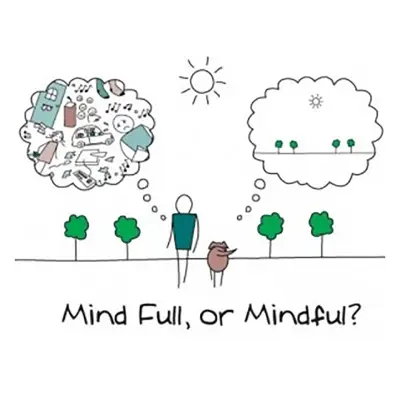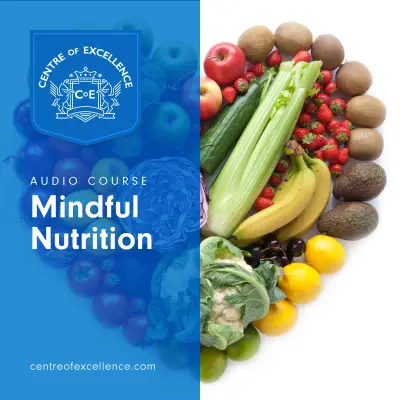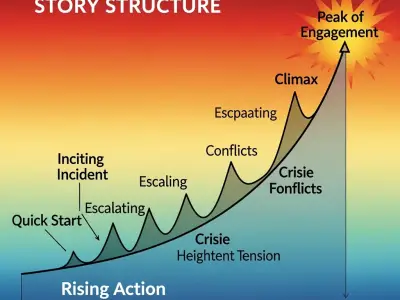Have you ever felt like you're just going through the motions, stuck in the same routine day in and day out, without any progress or excitement? It's a common feeling, and you're certainly not alone in this experience. This sensation is often described as being 'stuck in a rut'. A rut is a repetitive pattern of behaviour that has become dull and unproductive, and it can affect various aspects of life, including work, relationships, and personal growth.
Recognising that you're in a rut is the first step towards making a change. It's about understanding that feeling stuck doesn't have to be permanent. You can get unstuck, and this guide shows you how.
Jump to:
- What Does It Mean to Be Stuck in a Rut?
- Recognising the Signs You Are Stuck in Life
- Step 1: Acknowledge Your Feelings
- Step 2: Identify the Cause
- Step 3: Set Small, Achievable Goals
- Step 4: Seek New Experiences
- Step 5: Focus on Self-Care
- Step 6: Connect with Others
- Step 7: Embrace Learning and Growth
- Step 8: Practice Mindfulness and Reflection
- Step 9: Be Patient and Persistent
What Does It Mean to Be Stuck in a Rut?
Being stuck in a rut means experiencing a phase where you feel unmotivated, uninspired, and as if you're not progressing in life. This can often lead to feelings of frustration, stagnation, and even depression. It's important to recognise these feelings and understand that they are a normal part of life's ebb and flow.

Recognising the Signs You Are Stuck in Life
Identifying the signs that you are stuck in life is an important step in beginning your journey towards change. Feeling stuck can show in various ways, and it's important to be aware of these signs so you can address them effectively. Here are some common indicators:
- Lack of Motivation: This is a key sign you're in a rut. When you lose interest in activities that once excited you, it indicates that something needs to change.
- Constant Fatigue: It's not just about being physically tired. If you're feeling mentally exhausted even after adequate rest, it's a sign of being stuck in a monotonous cycle.
- Feeling Unfulfilled: This feeling arises when there's a gap between where you are and where you want to be. It often comes with a sense of not achieving your goals or desires in life.
- Avoidance Behaviour: Procrastination or avoiding tasks is a common sign. When you're stuck, tasks and responsibilities can feel overwhelming or pointless, leading to avoidance.
- Negative Mindset: A pessimistic outlook can make you feel trapped. If you often expect the worst or focus on the negatives, it might signify being in a rut.
- Lack of Progress: Feeling like you're not moving forward in your career, personal goals, or relationships can be a sign. You might feel like you're running in place, not making any meaningful advancement.
- Routine Fatigue: If your daily routine feels more draining than fulfilling, it might be time for a change. This is often accompanied by boredom or disinterest in your regular activities.
- Social Withdrawal: Pulling away from friends, family, or social activities can signal you’re stuck. When you're not feeling your best, it's common to isolate yourself.
- Decreased Creativity and Productivity: Feeling unable to generate new ideas or being less productive at work or in personal projects can be a symptom of being in a rut.
- Emotional Fluctuations: Experiencing sudden changes in mood, such as irritability or sadness, without a clear cause can indicate that you're feeling stuck in your current situation.
- Indecisiveness: Struggling to make big or small decisions can signify being stuck. This often stems from a fear of making the wrong choice or uncertainty about what you truly want.
- Feelings of Hopelessness: When you start to feel like things will never get better or that there's no point in trying to change, it's a significant sign of being stuck in a rut.
How to Get Out of a Rut
When you’re stuck in a rut, it can be hard to imagine a way forward. To help, we’ve compiled a list of nine actionable steps to help make a positive change in your life.
Step 1: Acknowledge Your Feelings
Getting out of a rut begins with a simple step: acknowledging your feelings. Give yourself permission to recognise and accept your current emotional state and understand that it's perfectly normal to feel stuck sometimes. This doesn't reflect failure or a flaw in your character; it's a natural part of the human experience. Everyone faces periods of stagnation or uncertainty at some point in their lives.
Often, we're tempted to brush our feelings under the carpet, especially if they make us uncomfortable. However, acknowledging your feelings is a powerful step towards understanding and eventually changing them. It's about saying, "I feel unmotivated, uninspired, or unhappy right now, and that's okay."
This step is also about self-compassion. Be kind to yourself during this process. Understand that feeling stuck doesn't define your entire existence; it's just a phase you're currently experiencing. Accepting your feelings gives you a clearer picture of what you're dealing with and how to move forward.
Step 2: Identify the Cause
Understanding what's contributing to your sense of stagnation is essential for creating effective strategies to overcome it. This step involves introspection and honest self-evaluation.
Start by asking yourself reflective questions to uncover the root causes of your feelings. Consider, "What specific aspects of my life are making me feel stuck?" It could be your job, relationships, or a lack of fulfilling hobbies. Sometimes, the cause might be less obvious, like an underlying fear of failure or a deep-seated belief that you don't deserve success.
Another important question is, "When do I feel the most unmotivated or unhappy?" Identifying specific times, situations, or triggers that exacerbate your feelings of being stuck can provide valuable insights. For instance, you might realise that you feel most unmotivated in the mornings or engaged in certain activities that don't align with your true interests or values.
It's also important to consider external factors. Are there circumstances or people in your life that contribute to your feeling stuck? Sometimes, environmental factors like a toxic work environment, lack of supportive relationships, or financial stress play a role.
Understanding the cause of your rut isn't about placing blame on yourself or others. Instead, it's about gaining clarity on what's holding you back so that you can address these issues constructively.
Recognising that there are specific reasons for your feelings can be empowering. It shifts your perspective from a sense of unhappiness to a more focused understanding of what needs to change.
Step 3: Set Small, Achievable Goals

When you're feeling stuck, making changes can seem daunting, if not impossible. That's why the third step is about breaking the overwhelm cycle by setting small, achievable goals. These goals act as manageable stepping stones that gradually lead you out of your rut, building momentum and confidence along the way.
The key to this step is simplicity and achievability. You want to set realistic goals within your current capabilities yet challenging enough to push you slightly out of your comfort zone. This could involve dedicating a small portion of your day to a new or neglected hobby. For example, commit to spending 30 minutes each day on something you enjoy, whether writing, gardening, painting, or learning a musical instrument. This gives you something to look forward to and rekindles passion and interest in your daily life.
Another approach is to make slight adjustments to your routine that can positively impact your well-being. Consider waking up 15 minutes earlier than usual to enjoy a quiet, peaceful morning. Use this time to meditate, write in a journal, or simply enjoy a cup of tea while reflecting on your goals for the day. These moments of calm can set a positive tone for the rest of your day.
You can also set goals related to personal development and self-care. This might include walking daily, practising mindfulness, or preparing a healthy meal. These activities promote physical and mental well-being, contributing to a more balanced and fulfilling lifestyle.
The beauty of setting small goals is that they are less intimidating and more immediately rewarding. Each time you achieve one of these goals, you build a sense of accomplishment and progress. It reinforces the belief that you are capable of change and improvement, no matter how small the steps might seem.
Step 4: Seek New Experiences
One of the most effective ways to break free from a rut is to introduce new experiences into your life. This step is about breaking the monotony that often accompanies feeling stuck. By actively seeking new activities, meeting different people, or altering your daily routine, you open yourself to fresh perspectives and opportunities that can reignite your enthusiasm and inspire you.
The essence of seeking new experiences lies in stepping out of your comfort zone. This doesn’t necessarily mean making drastic changes; even small alterations can significantly impact. For instance, you could try a new route on your daily walk, experiment with a different genre of books or movies, or cook a recipe you've never tried. These small acts of novelty can bring a sense of excitement and curiosity back into your life.
Meeting new people can also be incredibly enriching. Each person we encounter brings a unique set of experiences and perspectives. Consider joining clubs, groups, or online communities that align with your interests. Engaging in conversations and building connections with people outside your social circle can offer fresh insights and ideas you may have yet to consider.
If circumstances allow, travelling to new places can be a powerful way to break out of a rut. Experiencing different cultures, landscapes, and ways of life can dramatically broaden your horizons and challenge your perceptions. Even short trips to nearby places you've never visited can be refreshing and invigorating.
Step 5: Focus on Self-Care
Taking care of your mental and physical health is essential to break free from a rut. This step is all about self-care, often underestimated in its power to improve your mood and energy levels.
Ensuring you're getting enough sleep is essential. Sleep is the foundation upon which a healthy mind and body are built. When you're well-rested, your ability to think clearly, manage emotions, and face challenges improves. Create a sleep-friendly environment and routine that promotes restful nights.
Eating healthily is another key aspect of self-care. The food you consume impacts your energy levels and mood. Focus on a balanced diet rich in nutrients that fuel your body and mind. Start with small, manageable adjustments like incorporating more fruits and vegetables into your meals or reducing your intake of processed foods.
Engaging in physical activity is equally important. Physical activity releases endorphins, known as 'feel-good' hormones, which can lift your mood and provide a sense of accomplishment. You don't have to commit to intense workouts; even a daily walk, yoga, or stretching can make a significant difference.
Step 6: Connect with Others

Human beings are inherently social creatures, and the power of connection should never be underestimated, especially when feeling stuck or unmotivated. Sometimes, the simple act of talking to someone can make a difference in how you perceive and handle your situation.
Reaching out to friends and family can be immensely helpful. These are the people who know you well and care about your wellbeing. They can offer support, understanding, and a fresh perspective on what you're going through. Sharing your feelings with someone you trust can be incredibly cathartic. It helps unburden your emotions and allows you to hear your thoughts aloud, bringing clarity and new understanding.
Professional counsellors or therapists provide another valuable avenue for support. They can offer a safe and non-judgmental space to explore your feelings. Professionals are equipped with the tools and expertise to help you understand the deeper reasons behind your current state and can guide you in developing strategies to move forward.
Consider joining support groups or communities where you can connect with others who might be experiencing similar feelings. These groups offer a sense of solidarity and understanding that can be very comforting. Knowing that you are not alone in your struggles can be a powerful motivator in itself.
Step 7: Embrace Learning and Growth
Continual learning and personal development are transformative experiences that can provide a new sense of purpose and direction. When you're feeling stuck, engaging your mind in learning new skills or deepening your knowledge can be an incredibly effective way to shift your perspective and spark inspiration.
Consider the array of options for personal and professional development. Reading books is a classic and effective way to expand your knowledge and understanding. Choose topics that interest you or areas where you wish to grow. Reading opens up new worlds and viewpoints, whether it's self-help, fiction, history, science, or any other genre.
Taking courses is another excellent way to embrace learning. Centre of Excellence offers a diverse range of financially friendly courses that cater to various interests and fields. Our courses are designed to be accessible and engaging, making learning easy and enjoyable. Whether you're looking to enhance your professional skills, explore a new hobby, or gain deeper personal insight, there's likely a course that aligns with your interests.
The beauty of learning with the Centre of Excellence is the convenience and flexibility of online learning. You can learn at your own pace, fitting your studies around your existing commitments. This approach to learning is especially helpful if you're feeling overwhelmed or stuck, as it allows you to engage with new material in a manageable and stress-free way.
Education, in any form, is a powerful tool for breaking out of a rut. It stimulates the mind, provides a sense of achievement, and can open doors to new opportunities and experiences. By committing to learning and growth, you're not just acquiring new knowledge or skills but also nurturing your mental health and overall well-being.
Step 8: Practice Mindfulness and Reflection
Mindfulness is the practice of being fully present and engaged in the moment without distraction or judgment. This practice is a powerful tool in breaking the cycle of negative thinking and emotional overwhelm that often accompanies feeling stuck.
Mindfulness helps you stay grounded and connected to the present moment, which is particularly useful when your mind tends to dwell on past regrets or future anxieties. By focusing on the here and now, you can gain greater peace and clarity.
Practising mindfulness can be as simple as paying attention to your breathing, taking a mindful walk to immerse yourself in your surroundings fully, or engaging in a daily meditation practice. The key is finding a mindfulness practice that works for you and integrating it into your daily routine.
At Centre of Excellence, we understand the importance of mindfulness in personal growth and mental well-being. That’s why we offer a range of mindfulness courses designed to suit different needs and preferences. Whether you’re a beginner looking to understand the basics of mindfulness or someone seeking to deepen your practice, our courses provide the tools and knowledge necessary to incorporate mindfulness into your life effectively.
In addition to formal mindfulness practice, reflection is an important aspect of this step. Reflecting on your thoughts and feelings allows you to process them healthily. This can be done through journaling, talking with a trusted friend or therapist, or taking time each day to sit quietly and let your thoughts flow.
Step 9: Be Patient and Persistent
Change is a process, not an event. Real and lasting change doesn’t happen overnight; it unfolds gradually as you take consistent steps towards your goals. Being patient with yourself during this journey is essential. Understand that progress may be slow and setbacks are a normal part of the process. It's easy to get frustrated when results don't appear immediately, but patience lets you stay committed to your path without feeling discouraged.
Persistence is equally important. Stay committed to your goals even when the going gets tough. This means continuing to take small steps forward, even on days when you feel like you're not making any progress. Remember, every effort you make, no matter how small, contributes to your overall journey of change. Staying persistent helps you build resilience and determination, which are essential for overcoming any rut.
It's also important to celebrate small victories along the way. Acknowledge and take pride in your progress, no matter how minor it may seem. Celebrating these victories keeps your spirits up and reinforces the positive changes you’re making. It could be as simple as acknowledging that you met a small goal, tried something new, or made a healthy choice. Recognising these moments of success can motivate you to keep moving forward.
Recommended for you!
Best SellersYour Path to a Brighter Future With Centre of Excellence
If you're looking to change your life, our Living Your Best Life Diploma Course is the perfect next step on your transformation journey.
What You'll Learn
- Deep Self-Understanding: Our course offers insights into identifying your true aspirations, understanding your strengths, and acknowledging areas for growth. It's a journey to the core of your being.
- Goal Setting and Achievement: Learn how to set realistic, achievable goals. Our course guides you through crafting a clear path to success tailored to your aspirations.
- Effective Strategies for Personal Development: We provide practical strategies to help you overcome obstacles, stay motivated, and achieve your goals. These techniques are designed to be adaptable to various aspects of life.
Special Offer
We're thrilled to offer our Living Your Best Life Diploma Course at an exclusive price of just £29, saving you over £100!












